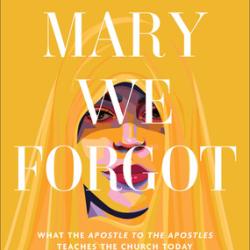A reader of last week’s post took exception to my comparison of large churches in Texas and small churches in Scotland, saying in effect “I’ll take a small church full of committed saints over your nominal Texas megachurches any day.” A bit of a broad brush, no doubt, but this does raise an important question. Is it easier to live out biblical Christianity in a small church or a big church?
A few caveats are in order. There can be healthy big and small churches, and unhealthy big and small churches. What I mean to compare here are healthy big churches, especially in areas (such as Texas) where Christianity still functions like a kind of de facto establishment, versus healthy small churches in places more influenced by post-Christian culture and secularism. I have spent time in both kinds of churches – a relatively large Baptist church (1500-ish) in Waco, and a small (100-ish) Baptist church in South Bend, Indiana.
One model is not better than another. Instead they come with a series of tradeoffs. Here are three of the most obvious:

A band of brethren vs. a teeming crowd: at small churches, especially in relatively secular areas, you tend to have a high rate of personal and collective commitment to the church and the Lord. We have been reminded of this in St Andrews in one impressionistic but telling way: almost everyone at our church here sings, and sings loud! I can sing pretty well, and I sing loud in church, and such singing stands out at our church in Waco. Not so much here – my voice joins with many others who are belting out praise to God. In large churches, you are constantly fighting against the nominalism of many attendees. But wouldn’t we prefer that those people be in church, whether they’re nominal or not? If they’re constantly hearing faithful gospel preaching, they’re more likely to turn the corner spiritually in church, rather than while lying in bed on Sunday morning.
All hands on deck vs. a deep bench: in small churches, you tend to have a higher percentage of people serving in the church, which enhances those people’s buy-in. In large churches, you tend to have a lower percentage of people mobilized, but you have more options (often talented options) on which to draw. Because I could sing (and since I used to sing in a garage band), in South Bend I ended up leading worship on Sunday mornings. In Waco, there are tons of talented, passionate musicians and singers, so I’ve gravitated toward teaching adult Sunday School, which probably syncs up more with my gifting. Our music in South Bend was heartfelt but limited by available talent and sound system; in Waco our program can match up with the highest quality church music in America.
A church like a small group vs. the critical need for small groups: at a small church, you tend to know everybody and everyone can feel like they’re spiritually connected to one another. You’ll probably end up praying and serving with almost everybody else at some point. In a large church, it feels relatively anonymous. During the “welcome time” you better not ask anybody “are you new here?” They probably have been going to the church longer than you. Again, it is a good thing to influence more people with the message of the gospel, but a large church had better offer a robust, intentional program of small groups/adult Sunday Schools, or you really will have serious problems with nominalism and people falling through the cracks.
In the end, pastors and other leaders need to pay attention to the kind of church God has given them, and attend to the particular challenges that come along with them, wherever the church falls along the size continuum.
[Friends, you can sign up here for my Thomas S. Kidd author newsletter. Each newsletter will update you on what’s happening in the world of American, a religious and political history, and current events. It will contain unique material available only to subscribers, and each will help you keep up with my blog posts, books, and other writings from around the web. Your e-mail information will never be shared. Thanks!]












